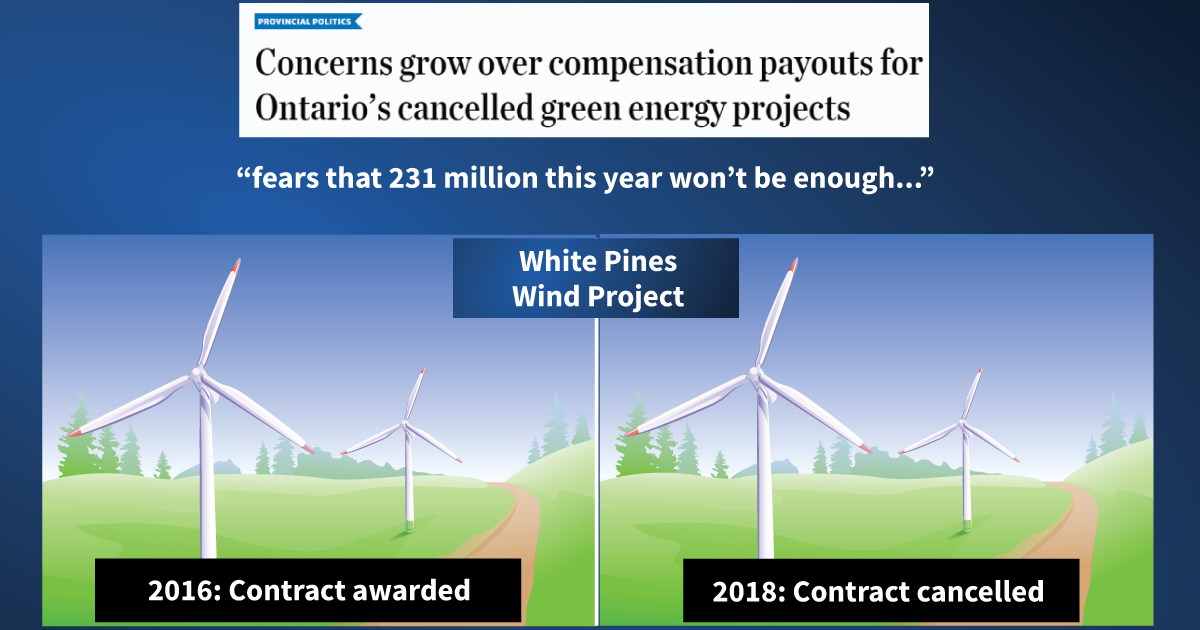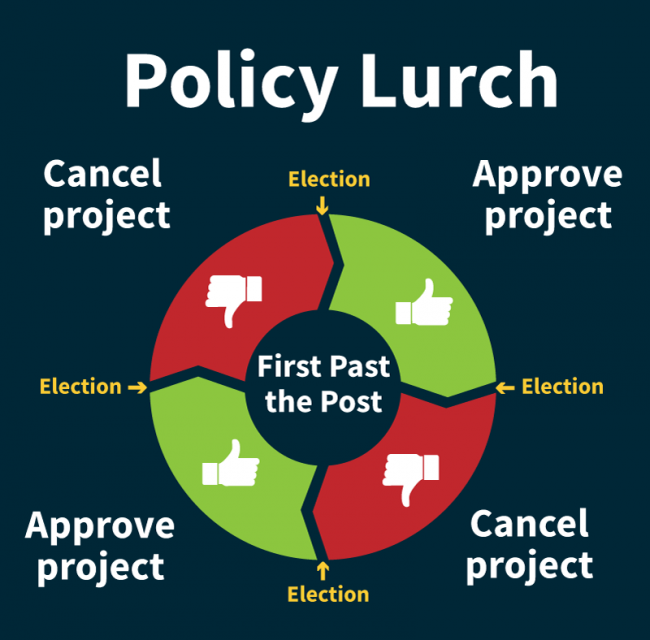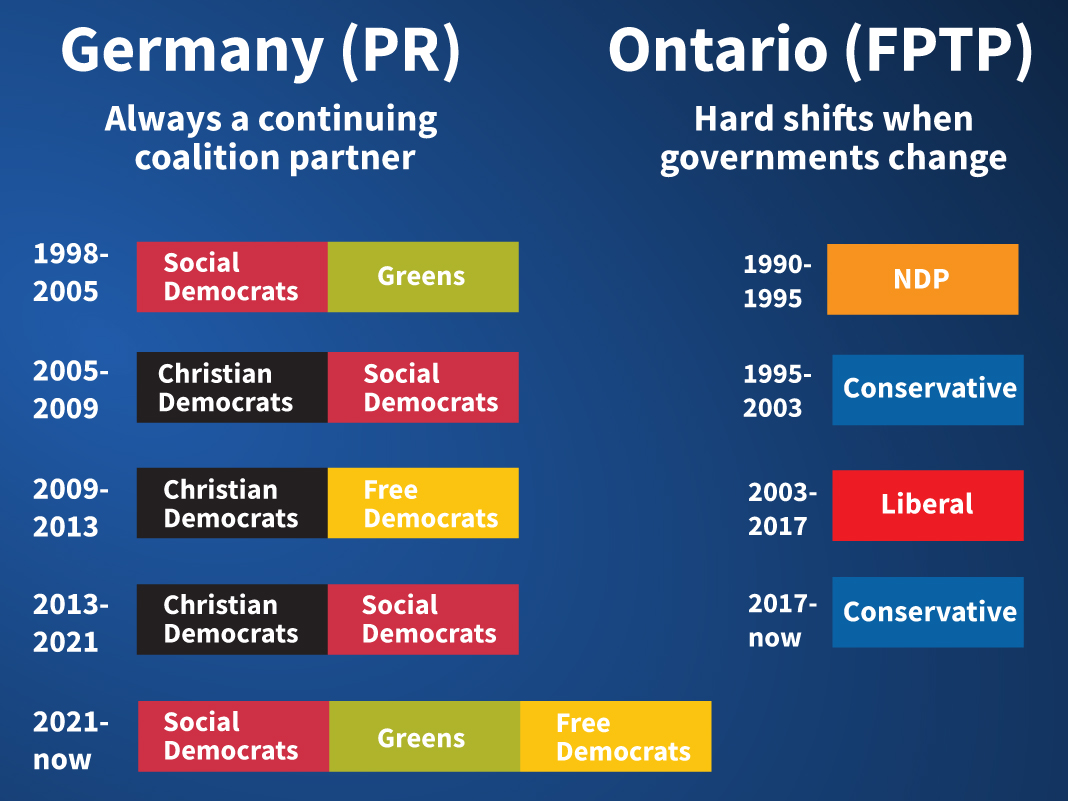
 The 29-turbine Ontario wind farm project by EDP Renewables Canada Ltd. has leapt from its deathbed with the stroke of a pen from Ontario’s Superior Court.
The 29-turbine Ontario wind farm project by EDP Renewables Canada Ltd. has leapt from its deathbed with the stroke of a pen from Ontario’s Superior Court.
Approved by the Liberals in 2018, the on-again, off-again project was abruptly cancelled by the incoming Conservative government just months later―a move that threatened to stick taxpayers with undetermined millions in contract cancellation costs.
Following a strong rebuke to the government from the Ontario Superior Court today which put the wind farm back on track, Ontarians are on the hook for only $126,000 in wasteful spending. The courts minced no words about the quality of government decision-making: “not reasonable,” and lacking in “transparency, justification, and intelligibility.”
Thanks to our first-past-the-post voting system, abrupt policy lurches―often driven by nothing more than ideology―are par for the course.
We can’t rely on the courts to protect us every time. Ontarians are already on the hook for $230 million in costs related to cancellation of 758 other renewable energy projects.
While groups like Ecojustice may win symbolic victories over a lack of consultation, companies like Tesla may win a lawsuit over cancelled rebates, and the federal government (depending on its ideology) may occasionally step in, these bandaids do little to improve the overall stability of decision-making.
Governments elected to majority power with 38-40% of the vote―the norm in Ontario―can start or cancel projects and policies on a whim, leaving little recourse for the industries affected or taxpayers, the majority of whom didn’t even vote for that government.
The consequences of unpredictable policy played out just months ago in Alberta, when Teck Mines cancelled a multi-million dollar project, warning governments that “the situation that has faced Frontier will be faced by future projects and it will be very difficult to attract future investment, either domestic or foreign.”
When elections hinge on a few swing voters, future decisions are unpredictable. It’s no wonder investors are nervous.
Research backs this up. Nooruddin’s study of economic volatility and electoral systems in 100 countries found that coalition governments produced less economic volatility due to more stable economic policy. About countries with majoritarian systems, he notes:
When a single party controls all the levers of the legislative process, it is better able to enact policies closer to its ideal point. The resulting policy might in fact be the preferred outcome for economic agents too (for instance, if the government in question favors a business-friendly policy regime), but the government can not guarantee that future governments will not reverse course should the opposition win. In this case, even if economic agents respond by investing in the country, they will remain wary of future policy change, and therefore forgo more irreversible investments.
Nooruddin also found that businesses judged countries run by coalitions to be more stable:
In a World Bank survey of firms across the world, I find that firms located in countries governed by parliamentary coalitions are less likely to perceive policy uncertainty to be a major obstacle to their businesses, and more likely to consider opening a new establishment in the near future.
Whether you support or oppose any particular project, the evidence is clear: the policy lurch of winner-take-all voting systems creates instability.
Companies hoping to invest in Canada’s energy future could be forgiven for wishing they had a crystal ball.
The move to proportional representation―with greater policy continuity―could be key to more stable and coherent planning for both governments and businesses across the country.

